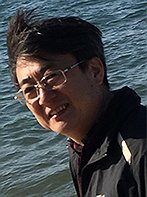Static Analysis for Quantum Software Correctness and ReliabilityQP Keynote
Software correctness and reliability have been central issues in classical computing for decades. Researchers have developed a wide range of approaches to these problems, but few have been to date for quantum computing. In this talk, I consider two different static analysis approaches to solving quantum software correctness and reliability problems: pattern-based bug detection and entanglement analysis. I will overview how these approaches work and conclude by discussing the challenges they face moving forward.
Jianjun Zhao is a Professor at the Faculty of Information Science and Electrical Engineering at Kyushu University. Before that, he worked at the Fukuoka Institute of Technology and Shanghai Jiao Tong University. He obtained his B.S. degree at Tsinghua University and his Ph.D. at Kyushu University. His research interests include software engineering and programming languages. Much of his current research focuses on techniques that make quantum software more robust, reliable, secure, and easier to specify, build, maintain, or improve.
Tue 14 MarDisplayed time zone: Osaka, Sapporo, Tokyo change
09:00 - 10:30 | Keynote and First papersQP at Faculty of Engineering Building 6, Seminar Room C Chair(s): Tao Yue Simula Research Laboratory | ||
09:00 5mDay opening | Workshop Opening QP Shaukat Ali Simula Research Laboratory, Paolo Arcaini National Institute of Informatics
, Tao Yue Simula Research Laboratory | ||
09:05 55mKeynote | Static Analysis for Quantum Software Correctness and ReliabilityQP Keynote QP | ||
10:00 30mTalk | Model-Driven Quantum Federated Learning (QFL)Full Paper QP Armin Moin Technical University of Munich, Germany, Atta Badii University of Reading, United Kingdom, Moharram Challenger University of Antwerp | ||
